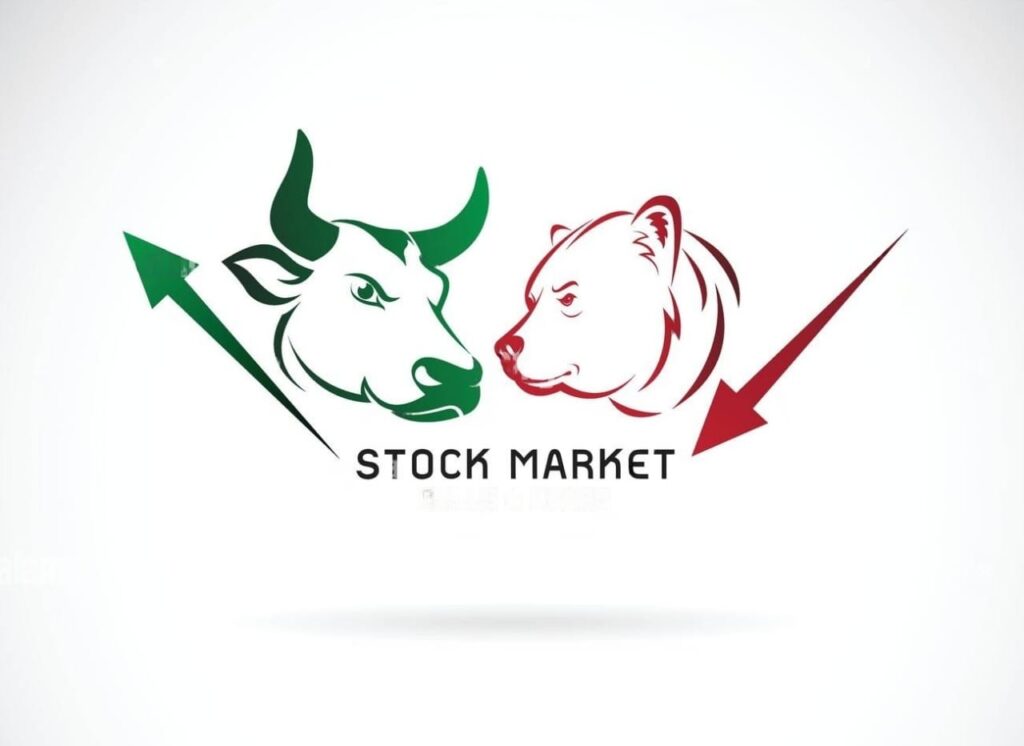Shares of publicly traded businesses are traded there. In an initial public offering (IPO), businesses sell shares to the general public on the primary market in order to raise money.
New securities are traded in the secondary market after being sold in the primary market, where investors purchase shares from one another at the going market price or at a price that both the buyer and the vendor agree upon. The regulatory body controls the secondary market and stock exchanges. The Security and Exchange Board of India oversees both the main and secondary markets in India. (SEBI).

Stock brokers can swap business stocks and other securities through a stock exchange. Only stocks that are posted on an exchange are eligible for purchase or sale. As a result, it serves as a hub for stock buyers and dealers. The Bombay financial Exchange and the National Stock Exchange are India’s top financial exchanges.
KEY TAKEAWAY
- Buyers and sellers can trade equity shares of public companies in stock markets.
- Due to their ability to democratise access to investor buying and capital exchange, stock markets are essential elements of a free-market economy.
- Prices are discovered and traded in stock marketplaces in an efficient manner.
- The Securities and Exchange Commission (SEC) and regional regulatory agencies oversee the American equity market.
Let’s have a look at BSE and NSE meaning:
The oldest and quickest financial exchange is BSE (Bombay financial Exchange). Asia’s first stock market was there. For new investors or those seeking steady, low-risk assets, BSE is a great option.
The first stock exchange to give a screen-based trading system was NSE (National Stock Exchange), the world’s largest stock exchange. With a completely integrated business model that offers high-quality data and services, it increased trading transparency on the Indian stock market. The NSE trades more than other financial exchanges combined. For investors who like to take big risks, NSE is an excellent choice.
Companies and buyers can trade in a secure environment thanks to NSE and BSE. Both provide high levels of money, reach, and transaction speeds. Securities and Exchange Commission

Bombay Stock Exchange
It is the oldest stock exchange in India and has the 11th-largest market capitalization value worldwide, having been founded in 1875. Premchand Roychand established it as the Native Shares and Stock Brokers’ Association, and Sethurathnam Ravi is in charge of running it at the moment. The Bombay Stock Exchange, which is based in Mumbai, is similar to stock exchanges in New York, London, Tokyo, and Shanghai and has close to 6,000 companies listed on it.
BSE improved the nation’s finance system and gave India’s capital markets a much-needed boost. BSE has additionally given SMEs a platform for equity dealing. Its product portfolio has grown over time to now include clearing, risk management, and payment services.Bombay Stock Exchange (BSE): BSE is the most established and rapid.
National Stock Exchange
NSE was incorporated in 1992 and recognised as a stock exchange by SEBI in April 1993. It commenced operations by launching the wholesale debt market in 1994 followed by the launching of the cash market segment. In 1996, it commenced the index NIFTY 50. In 2010-11, it started trading of index futures and options on global indices like S&P 500 and Dow Jones Industrial Average.
How does the Bombay Stock Exchange Work?
The Bombay Stock Exchange operated on an open floor arrangement up until 1995. It then switched to a computerised trading platform used by the Nasdaq and the New York Stock Exchange, which is hugely well-liked globally. The electronic trading method has advantages such as reduced errors, quicker execution, and increased effectiveness.
By allowing direct market entry, the electronic trading system has eliminated the need for outside specialists. With this change, the overall number of transactions per day have taken centre stage instead of specific buyers and sellers.
Although some investors who engage in high volumes of transactions are given direct financial access, trading in the BSE online market is carried out through depository participants.
There are several benefits of listing in the BSE and NSE:
- Simple capital formation
Investors have faith in companies that are published. Due to the transparency of the platform, users can analyse openly available data points on the performance of the companies and make investments as a result. For businesses seeking to raise money from ready investors, this trust is advantageous. There is a ready market of buyers for the securities of listed businesses. Additionally, it is impossible to ignore the BSE and NSE’s contribution to the flow of money into the economy.
